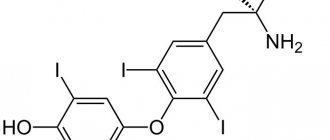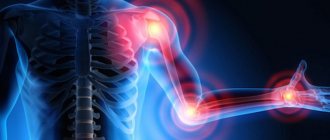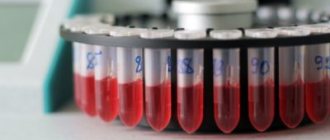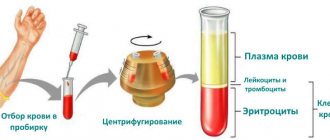Normal levels of this hormone in the body have a positive effect on a number of functions, while its increase can cause unwanted diseases and unpleasant symptoms.
The hormone cortisol is called the stress hormone because it is produced by the adrenal glands in stressful situations. This substance of organic nature is necessary to improve human brain activity, support his nervous system during stress and stimulate the heart. If cortisol is elevated in a person’s body, this can lead to certain troubles for his health in the form of obesity, increased irritability, thyroid dysfunction, etc.
You should carefully consider how to lower cortisol to avoid the above-mentioned problems and continue to lead a full, healthy life.
General concept of cortisol
Cortisol (hydrocortisone, 17-hydroxycorticosterone) is a biologically active glucocorticosteroid substance that is produced by the adrenal cortex and belongs to group 11, 17 - oxycorticosteroids. The adrenal glands produce the hormone using corticotropin. The signal for the synthesis of adrenocorticotropin is sent by the hypothalamus, a region of the diencephalon. In the blood, the glucocorticoid is present in free and bound fractions - with protein compounds and red blood cells.
The glucocorticosteroid is declared a “stress hormone,” and athletes call the organic compound enemy number one—the “death hormone.” People who are prone to obesity blame the hormone for excessive accumulation of abdominal fat, and those who have trouble sleeping also blame cortisol for lack of sleep and insomnia.
Cortisol is elevated - causes, symptoms, treatment
When cortisol increases in the blood of women, the following symptoms are observed:
- nervousness;
- frequent urination;
- menstrual irregularities;
- increased sweating;
- dry skin;
- skin rash;
- abnormalities in bowel function;
- swelling of the face;
- decreased libido;
- swelling of the limbs;
- increased heart rate;
- excess weight;
- the woman sleeps poorly or even suffers from insomnia. On the contrary, excessive drowsiness is possible. This is how the body tries to protect the nervous system from excessive stress;
- stress without an objective reason;
- anxiety and excitement appear without reason;
- Metabolism is disrupted, the woman regularly feels hungry and eats a lot of fatty and sweet foods.
- muscles are exhausted, weakness in the body is characteristic;
- shortness of breath, pain in muscles and joints appears.
- Stress of different types and origins.
- Diabetes.
- Cirrhosis of the liver.
- Hepatitis.
- Benign and malignant adrenal tumors (adenoma, cancer).
- Hypothyroidism (decreased thyroid function).
- Cushing's syndrome.
- Pituitary adenomas.
- AIDS.
- Polycystic ovary syndrome.
- Depression.
- Obesity.
- Taking certain medications (atropine, glucocorticoid hormones of synthetic origin, opium-based drugs, hormonal contraceptives and estrogens).
- Alcoholism.
- Anorexia.
Such a list of threatening diseases suggests that identifying high levels of cortisol may be an indicator of serious trouble in a woman’s body. This condition requires a quick examination and diagnosis to accurately determine the true cause of the increase in data on this hormone. This will help you begin treatment as quickly as possible and cope with dangerous diseases and conditions.
If cortisol is elevated, the body:
- Is in a state of stress, sometimes for no particular reason;
- There is increased irritability;
- A metabolic disorder occurs;
- The thyroid gland is depleted. As a result, if cortisol is elevated, the level of other vital hormones, for example, prolactin, begins to decrease;
- The protein mass of a person is destroyed. Accordingly, the muscles become more susceptible to any pain. There is a feeling of fatigue and weakness even after minor physical exertion. For example, you climbed a high, long staircase and feel shortness of breath, weakness, pain in the joints;
- Insomnia begins to plague a person’s biorhythm.
Another symptom of elevated cortisol is completely uncontrolled food consumption. If a person does not eliminate the cause in time, then this threatens obesity and exacerbation of problems associated with digestion - gastritis, pancreatitis, heartburn, peptic ulcer.
Shaking hands, prolonged depression, apathy, a feeling of complete depression, moral exhaustion and a tendency to mental disorders are symptoms that urgently need to check the level of the hormone cortisol and carry out appropriate treatment.
Mood swings (increased irritability, depression or anxiety). This symptom is characteristic of increased levels of cortisol in the blood. If you become moody, constantly in a bad mood, or experience anxiety, then know that these symptoms are a consequence of the long-term effects of cortisol on the production of serotonin and dopamine.
Digestive problems. Elevated cortisol levels disrupt the digestive tract, reduce the production of enzymes needed to digest food, and reduce the absorption of minerals and nutrients. Stress is one of the causes of poor digestion.
DETAILS: Blood test for coagulation is normal in children and adults
Heart disease and high blood pressure. Elevated cortisol levels can be caused by a very stressful lifestyle. Too much stress can cause hypertension, which increases the risk of heart disease.
Sleep problems. Cortisol production is naturally high in the early morning as it helps us wake up energized. However, in people with elevated cortisol levels, the circadian rhythm of this hormone is altered. These people have low cortisol levels in the morning, not high ones.
Increase in body weight. Cortisol stimulates appetite and cravings for sweets and other high-calorie foods. Therefore, if you have constantly elevated cortisol levels, then most likely you will want to eat high-calorie fatty and carbohydrate foods.
Skin aging and wrinkles. Elevated cortisol levels lead to skin dehydration, which can cause you to develop wrinkles prematurely.
Increased susceptibility to infection. Cortisol can weaken the activity of the immune system, so a person may get colds more often.
Facial hair on women. The appearance of “antennae” indicates a hormonal imbalance, which often occurs with elevated cortisol levels.
Purple/pink stretch marks (striae) may appear and are similar in appearance to those seen in pregnant women.
In most cases (except those caused by steroid medications), symptoms of elevated cortisol levels develop gradually. Diagnosis is often difficult because most symptoms may be due to other diseases.
Women experience troubles painfully, suffer from physical overload, as they take on much more than their nervous system and physical endurance can handle.
As a result, the body reacts with stress, in which the hormone cortisol is released into the blood in large quantities.
A woman’s body can survive a one-time or slightly increased release of cortisol, but too strong nervous and physical shocks, as well as a state of constant stress over a long period, lead to very serious consequences for women’s health and even life.
Cortisol is the stress hormone!
Cortisol is a steroid hormone produced by the adrenal cortex and is considered the most active of all glucocorticoid hormones. This important substance is involved in the regulation of fat, protein and carbohydrate metabolism.
Cortisol is often called the hormone of stress or even death. Indeed, the release of large amounts of cortisol is directly related to stress and overwork. The production of cortisol is a kind of protective measure of the body.
It is produced in order to neutralize stress by releasing additional energy for the functioning of all organs and systems under conditions of increased stress. And for this there is the closest source of energy - muscle tissue.
Cortisol released during overload enters the bloodstream, contributing to an increase in blood pressure and an increase in blood glucose levels.
This mechanism ensures full functioning of the brain under conditions of severe stress. The easiest and fastest way to get important nutritional components, the same amino acids and glucose, from muscle tissue.
This is why persistently elevated cortisol in women often leads to overweight and obesity. The loss of energy and nutrients causes severe “nervous” hunger.
This body strives to restore lost reserves, but we rarely give it healthy foods.
It is common for women to “eat up” stress with sweets and baked goods, that is, those that promote the production of endorphins—pleasure hormones. This is how our body tries to cope with a stressful situation.
And this, in turn, causes a further chain reaction, provoking numerous dangerous diseases.
This occurs by regulating the supply of glycogen in the liver, a derivative of glucose.
Cortisol is also often called the “stress” hormone, since its concentration in the blood increases sharply with excessive emotional stress.
But this is only one of the main reasons why its level may be elevated in the body. What else causes this and is this condition dangerous? What symptoms may indicate that the level of cortisol in the blood is elevated?
The first thing to disturb is the balance in the hormonal system - something that must be in order for a person to remain healthy. For a woman, hormonal balance is doubly important, because in this case it has a special meaning.
Normal hormonal concentration depends not only on daily hassle, but also on how their ability to bear offspring is currently realized. The hormone hydrocortisone, which is responsible for the reaction to stressful situations, also has a very strong effect on the female body.
DOCTORS RECOMMEND!
Functions of cortisol
Even during primitive times, it was impossible to do without cortisol, because people were constantly in danger. The body's protective reaction contributed to survival: natural phenomena and the hostile proximity of predators often provided a threat. In critical situations, adrenal functions were activated, synthesizing hydrocortisone. Thanks to the chemical element, blood rushed to the muscles and heart. Thanks to the biochemical process with the release of cortisol, the person became stronger, and the ability to survive doubled.
Everyone has probably noticed more than once that during times of stress or anxiety, the heart begins to beat faster - this is due to the release of a hormonal substance. Cortisol is called the “death hormone” because with active synthesis, the heart does not always cope with a saturated amount of blood, not having time to pump, which is fraught with coronary disease or a sudden cessation of cardiac activity - cardiac arrest.
An organic compound is necessary for a person in stressful situations to perform a protective function. During neuro-emotional and physical stress, the hormone increases the concentration of glucose by reducing its elimination in the periphery. If a hormonal imbalance occurs and cortisol is produced in insufficient or excessive quantities, sodium retention in the body and swelling may occur.
In addition to protecting against stress, hydrocortisone has an anti-inflammatory effect and reduces sensitization (sensitivity) to various agents, increasing the body's protective functions. Moreover, the hormonal substance increases the level of platelets and red blood cells in the blood, but reduces lymphocytes and eosinophils.
When a life-threatening situation arises, there is a rush of blood to the heart, but blood production in the digestive, urinary, and reproductive systems stops, so intense cortisol synthesis harms a person: it depletes muscles, leads to weakness in the post-stress period.
The functions of hydrocortisone are as follows:
- Protecting the body in stressful situations;
- Muscle catabolism;
- Vascular stenosis (narrowing), accelerated hemodynamics - the movement of blood through the vessels;
- Launching biochemical processes in the liver;
- Stabilization of sugar levels in case of insufficient nutrition;
- Obstacle to lowering blood pressure due to emotional disturbances;
- Active breakdown of fats, regulation of cholesterol production and prevention of obesity.
The effect of the hormone on the body is presented in more detail in Table No. 1:
Effect on the body
| What happens under the influence | |
| Carbohydrate metabolism |
|
| Protein metabolism |
|
| Dissimilation |
|
| Lipid metabolism |
|
| Water-salt metabolism |
|
| Hematopoietic system |
|
| Protective functions |
|
| The process of blood cell maturation |
|
| Gastrointestinal tract |
|
| Endocrine glands |
|
Why is high cortisol dangerous?
Dysfunction of cortisol production is dangerous for women's health and can have many consequences. Constantly being in a state of excessive nervous tension is fraught with serious disorders.
Consuming energy from muscle tissue can lead to muscle wasting and weight gain. Violation of blood pressure levels to a lesser or greater extent can provoke the occurrence of pathologies in the nervous and cardiovascular system.
There is also a constant increase in blood glucose levels due to increased stimulation of its synthesis, as well as inhibition of insulin. Osteoporosis may occur due to impaired calcium absorption and impaired bone formation.
Digestive processes are disrupted and cholesterol levels in the body increase. Also, elevated cortisol levels have a negative effect on memory, gradually developing atherosclerosis, as well as on the woman’s reproductive system, causing infertility.
The consequences of elevated hormones can be pathologies in the functioning of the thyroid gland, adrenal glands, liver and heart. The regeneration process after tissue damage also slows down.
Cortisol - stress hormone
Hydrocortisone is often called a stress hormone, but it is more correct to call it an adaptation hormone. Thanks to the production of an organic compound, the body adapts and survives unfavorable factors. Similar factors are:
- Injury;
- Fright;
- Painful sensations;
- Infections;
- Heat;
- Cold;
- Fatigue;
- Chronic lack of sleep;
- Chronic exhaustion of the body;
- Strong emotions - aggression, panic, anger;
- Hunger.
Under the influence of the above factors, hormonal levels fluctuate, and women are more susceptible to cortisol fluctuations than men. Sometimes an increased level of hydrocortisone indicates the body’s adaptation to certain conditions, but most often hormonal imbalances appear due to insufficiency of the adrenal cortex, which requires urgent medical intervention and treatment to avoid serious consequences.
Cortisol: concept, features
Before we talk about how to reduce cortisol levels, it is necessary to understand what kind of hormone it is in general and what its normal level should be.
So, cortisol is a hormone found in human blood and produced by the adrenal glands . It is not surprising that it is called the stress hormone , since it begins to be actively produced during strong nervous experiences, worries, shocks, etc.
Subscribe to our INSTAGRAM account!
When a person is in normal physical and emotional condition , the level of cortisol in the blood is within 10 mg. In this case, the elevated cortisol level is in the range of 80 mg. This condition entails undesirable consequences and complications in the form of destruction of the nervous system, pathological changes in muscle function, metabolic disorders, etc.
If cortisol is elevated, this cannot be ignored. The following symptoms will help determine the level of the hormone in the blood, as well as prescribe the correct treatment to normalize the level of this substance in the body.
Cortisol levels in women
Cortisol is a highly active hormone that is released into the blood in small doses and is quickly destroyed. The mechanism of excretion of organic matter is by the kidneys along with urine.
A woman's hormonal levels change depending on the time of day. In the morning and after waking up, a maximum synthesis is observed - 140 - 620 nm / l, and in the evening before going to bed - a minimum - 48 - 290 nm / l.
In a healthy female representative of the childbearing period, the cortisol concentration reaches 130 - 600 nm / l. At rest, the indicators remain unchanged, but under the influence of certain factors - fear, anger and others - the hormone content increases sharply and is accompanied by the following symptoms:
- Tearfulness;
- Irritability;
- Depressed state.
Also, the concentration of organic matter fluctuates depending on age, as shown in Table No. 2:
| Age | Level, nm/l |
| 12 – 15 years | 130 — 400 |
| 16 – 38 years old | 130 — 600 |
| 40 – 55 years | Less than 130 |
What not to do if you have high cortisol
When carrying out differential diagnosis of adrenal insufficiency (primary or secondary), the level of cortisol
is determined together with the ACTH (adrenocorticotropic hormone) indicator.
The results of the analysis are recorded in nmol/l.
In children under one year of age, the cortisol level ranges from 28 to 966.
From one to five years – from 28 to 718.
From five to ten years – from 28 to 1049.
From ten to fourteen years - from 55 to 690.
From 14 to sixteen years old - from 28 to 86.
From the age of sixteen, the adult norm is established - from 138 to 635 (the norm of morning secretion).
The norm of evening secretion for adults is from 79 to 477.
The hormone may increase due to:
- basophilic pituitary adenoma;
- oncological and benign tumors of the adrenal glands;
- nodular adrenal hyperplasia;
- ectopic CRH syndrome or ACTH syndrome (the appearance in the body of malignant tumors capable of producing hormones;
- combined form of PCOS (polycystic ovary syndrome);
- Itsenko-Cushing syndrome;
- thyroid diseases;
- hypoglycemia;
- obesity;
- long-term depression, stress;
- acquired immunodeficiency syndrome;
- decompensated diabetes mellitus;
- treatment with glucocorticosteroids, CRH, ACTH, estrogen preparations.
The hormone may decrease as a result of:
- hypopituitarism;
- Addison's disease;
- congenital insufficiency of the adrenal cortex;
- long-term treatment with glucocorticosteroids (withdrawal syndrome);
- adrenogenital syndrome;
- hypothyroidism;
- liver cirrhosis and hepatitis;
- sudden weight loss;
- use of certain medications (interferon, levodopa, etc.).
An increase in cortisol in the body does not have a beneficial effect, rather the opposite. High levels of the hormone cortisol are aimed at destroying human muscles. Why is this happening? If we lower down the chemical processes that occur in the human body, we get the following picture:
- A person experiences emotional stress (nervous shock) or physical stress (exceeding the norm in the gym).
- Within a few seconds, the brain receives an impulse indicating danger.
- Cortisol increases from the lower limit of 10 mg to 100-180 mg, depending on the level of danger.
- Increased cortisol in the body triggers the mechanism of muscle destruction. Why muscles? Because they consist of the simplest components, namely glucose and various amino acids.
- Since the central nervous system has received a signal of danger, an electrical impulse begins to be sent from it to the cardiovascular system. As a result, blood pressure increases. And at this moment, the hormone cortisol enters the blood along with glucose formed after the breakdown of muscle tissue. This mixture of cortisol, glucose and amino acids helps the brain cope with shock. It’s not for nothing that doctors call this condition adrenaline shock.
Hypercortisolism, or in simple words - increased cortisol in the body, can occur for completely different reasons. A person needs to check for serious diseases such as:
- Diabetes;
- Hypoglycemia – low blood glucose levels;
- Hypothyroidism – insufficient levels of thyroid hormones;
- PCOS – polycystic ovary syndrome in women;
- Obesity of the second and third degree;
- Adrenal adenoma or nodular hyperplasia;
- AIDS;
- Alcoholism;
- Hepatitis of all forms;
- Cirrhosis of the liver;
- Anorexia physical and nervous.
It is also worth noting that the reasons for the increase in cortisol may be associated with the period of a person’s growing up - at the age of 11-16 years. Cortisol is also elevated in those who take sedatives for a long time.
If cortisol is elevated in a woman, pregnancy may be the cause. After pregnancy occurs, the hormone is responsible for supplying the body with the necessary energy and maintaining optimal blood glucose levels.
Pregnancy may be the cause of increased hormone levels in women.
While carrying a child, the level of cortisol will constantly increase, since pregnancy itself is a stressful situation for a woman, and psychological and physiological changes occur in the body of the expectant mother. Normally, the following amounts of the hormone can be observed:
- I trimester (up to the 13th week): hormone levels can range from 206 to 392 nmol/liter.
- II trimester (from the 14th to the 27th week): the amount of cortisol doubles and can range from 392 to 536 nmol/liter.
- III trimester (from the 28th to the 41st week): the range is from 536 to 1141 nmol/liter.
Moreover, according to research, an excess amount of this hormone in women outside pregnancy leads to disruption of the maturation and release of the egg, which can cause infertility.
Neoplasms
The cause of increased cortisol in the body can be benign and malignant tumors:
- Pituitary microadenoma. In 80% of cases, it is this tumor that causes an increase in the level of corticotropic hormone, which, in turn, controls the production of corticotropin. It refers to benign neoplasms with glandular contents. The size of the tumor does not exceed 20 mm. An increase in hormone levels can be observed both briefly and over a long period.
- Corticosteroma or adenomatosis (multiple adenomas) of the adrenal cortex, which autonomously synthesize excess amounts of cortisol. In 18% of cases, it is these neoplasms that cause an increase in the level of the hormone in the body and the development of characteristic symptoms. Corticosteromas also include malignant neoplasms such as corticoblastomas and adenocarcinomas. Adrenal tumors are found five times more often in women than in men.
If cortisol levels are not reduced to normal, then a woman may develop consequences such as diseases of the cardiovascular system, osteoporosis, and metabolic disorders.
Cortisol levels in the body may be higher than normal in people who take the following groups of medications:
- corticosteroids (hydrocortisone, prednisolone);
- oral contraceptives;
- opiates;
- barbiturates.
In this case, treatment is not required, and after discontinuation of the drug, the hormone level normalizes on its own.
Sleep disturbance is one of the reasons for increased hormone levels
Elevated cortisol levels may also be caused by:
- polycystic ovary syndrome;
- hypothyroidism;
- AIDS;
- cirrhosis of the liver;
- diabetes;
- sleep problems;
- obesity;
- alcohol abuse;
- protein diet.
Symptoms of elevated cortisol include:
- Depressed state. Moodiness, irritability, mood swings, and anxiety appear. The hormone affects the production of dopamine and serotonin, so people with elevated levels of this hormone often become depressed.
- Muscle weakness. The destruction of muscle tissue under the influence of the substance leads to fatigue even after minor physical exertion. It may be accompanied by pain in the muscles. As a result of weakness of the peritoneum, the stomach begins to droop and the buttocks look slanted.
- Increased blood pressure. In some cases, hypertension develops.
- Digestive problems. With elevated levels of the hormone, gastritis, pancreatitis, cholecystitis or peptic ulcers are often observed. This is due to both hormonal imbalance and increased appetite.
- Frequent illnesses. The substance affects the immune system, inhibiting specific immunity and leading to its deficiency.
If cortisol is elevated, women may experience menstrual irregularities, amenorrhea, and infertility. Lack of sexual desire is often observed.
Increased cortisol levels may lead to obesity
Excess of the hormone can lead to an increase in appetite, resulting in a craving for sweets. Fat deposits are distributed unevenly, they accumulate in the face, neck, abdomen, back and chest, and the limbs may remain disproportionately thin.
DETAILS: Causes of blood flowing from the anus
If there is a high level of cortisol in the body for a long time, it leads to the skin becoming dry and flaky. It takes on a marbled pattern as the vessels become more visible.
The function of the sweat glands is enhanced, and capillary fragility leads to the formation of bruises even with minor injuries. There is a tendency to form acne, and areas of redness are often observed.
The normal level for children under 16 years of age is the amount of cortisol in the range of 85-580 nmol/l. The normal amount of cortisol in adult women is 140-600 nmol/l. Cortisol is high in the morning and low in the evening.
The amount of hormone in the blood will be shown by a biochemical analysis.
Rules for taking a cortisol test:
- Drinking alcohol is prohibited.
- Limit coffee and tea.
- Do not take estrogens or other hormones or dietary supplements.
- The day before the test, avoid sports activities.
- Do not smoke before the test.
- Do not engage in sexual intercourse.
- Avoid fatty foods.
- Take the test on an empty stomach, the last meal should be 10-12 hours before the test.
An increase in cortisol in some situations is considered natural, and sometimes indicates pathological processes. If cortisol in the blood is elevated, this is normal only when:
- pregnancy;
- puberty;
- taking certain medications (estrogen, atropine, synthetic glucocorticoids, narcotic opium drugs, hormonal contraceptives);
- the reason is that a woman is following a carbohydrate diet;
- heavy sports loads;
- causes in stressful situations in women.
Pathologies that cause elevated cortisol:
- colorectal or lung cancer;
- cirrhosis of the liver;
- obesity;
- hepatitis;
- the hormone is increased due to the growth of the adrenal glands in the woman’s body;
- diabetes;
- polycystic ovary syndrome;
- adrenal tumors of various types;
- a pituitary tumor causes increased cortisol in women;
- Cushing's syndrome (obesity with excess hair growth);
- AIDS;
- cortisol is increased due to alcoholism;
- anorexia;
- hypothyroidism
To check your cortisol level you need to donate blood for biochemistry
Irritability, weakness, hunger, depression and apathy are signs of increased cortisol!
Causes of increased hydrocortisone levels
The following reasons for increased hormone levels are identified:
- Physiological;
- Functional;
- Pathological.
Physiological reasons
In some cases, an increase in cortisol concentration - hypercortisolism - is a physiological characteristic that is inherent in a woman at a certain period of life.
It is normal for cortisol levels to increase during pregnancy, doubling or more times and reaching concentrations of 1200 - 2100 nm/L. Intense cortisol synthesis during pregnancy is explained by the increased load on the body and the provision of nutrients not only to the body of the expectant mother, but also to the baby, which is associated with increased metabolic processes. Thanks to organic matter, many systems and organs are formed in the fetus. After the birth of the baby, hormonal balance is restored.
Moreover, a physiological increase in cortisol is observed during breastfeeding.
Functional reasons
The norm with an increase in hormonal levels is when a woman:
- Takes oral contraceptives with estrogens;
- Follows a carbohydrate diet or fasts;
- Actively involved in strength sports;
- Takes synthetic glucocorticoids, narcotic opium medications, Atropine;
- Abuses drinking alcohol.
In addition, the following ailments contribute to intense cortisol synthesis:
- Obesity;
- Polycystic syndrome (PCOS);
- Period of puberty (puberty);
- Menopausal period (menopause);
- Diabetes;
- Chronic lack of sleep;
- Changes in liver structures;
- Inflammatory liver diseases;
- Cushingoid - excess glucocorticoids;
- HIV infection;
- Anorexia;
- Hypothyroidism;
- Central nervous system dysfunctions - psychoneuroses, depressive disorders.
Increased cortisol affects the activity of the heart and central nervous system. With an intense release of the hormone, the body is quickly depleted, and the woman is susceptible to chronic fatigue.
Pathological causes
A pathological increase in the hormone is caused by diseases that are combined with hypofunction of the adrenal glands:
- Itsenko-Cushing syndrome;
- Hormonally active tumor of the adrenal cortex;
- Oncology of other organs - ovaries, rectum, lungs.
Reasons for rising cortisol levels
The concentration of the hormone increases with stress, anxiety, anger, and depression. The use of corticosteroids (hydrocortisone, prednisolone) can stimulate the production of the hormone.
Activate hormone production:
- overtraining;
- avitaminosis;
- alcohol and drug abuse;
- increased estrogen levels;
- malnutrition, anorexia, bulimia;
- kidney and liver diseases;
- hyperthyroidism of the thyroid gland;
- obesity;
- taking contraceptives;
- pregnancy;
- previous surgeries, injuries, infections.
Symptoms of hypercortisolism
Regular increases in cortisol cause the destruction of protein compounds and disturbances in carbohydrate metabolism. The first signal of hypercortisolism is a change in eating behavior. Cravings for certain foods also often appear.
When cortisol levels increase in a woman, there are signs such as:
- Irritability;
- Frequent urge to urinate;
- Menstruation disorders;
- Excessive sweating (hyperhidrosis);
- Dry skin;
- Epidermal rashes and hyperemia of the skin;
- Intestinal dysfunctions;
- Hirsutism;
- Swelling of the face, legs, arms;
- Decreased libido;
- Increased heart rate;
- Excess weight;
- Insomnia, frequent waking up at night or increased sleepiness;
- Stress without an objective reason - emotional instability;
- Low concentration;
- Sedentary feeling of anxiety;
- Metabolic disorders, constant feeling of hunger with the desire to eat sweets or fatty foods;
- Muscle wasting, body weakness;
- Shortness of breath, pain in muscles and joints.
If measures are not taken in a timely manner and hormonal levels are not regulated, hypercortisolism causes the following disorders in the body:
- Suppression of insulin production and excessive secretion of sucrose, which is fraught with the development of diabetes mellitus;
- Deterioration of nutrition and bone tissue resorption - development of osteoporosis;
- Increased cholesterol levels, the appearance of atherosclerotic plaques;
- Decreased calcium absorption;
- Persistent increase in blood pressure and development of diseases of the hematopoietic system;
- Disruptions of the menstrual cycle;
- Deterioration of the thyroid gland;
- Sudden mood swings, suicidal tendencies;
- Slow recovery from injuries;
- Decreased production of happiness hormones - dopamine and serotonin;
- Memory losses;
- Frequent colds due to decreased immunity - the formation and functioning of lymphocytes is disrupted;
- Violation of reproductive ability - infertility.
The effect of stress on a woman's body
Stress consumes a huge amount of nutrients. Cortisol takes them away from the muscles, as this is the fastest way. For this reason, athletes really don’t like this hormone; it interferes with building muscle mass by taking away proteins. And with strong physical exertion, it accumulates and causes muscle weakness.
An increase in cortisol in women awakens very strong hunger. Thus, the body signals the need to replenish spent reserves. Women try to restore them and at the same time increase the level of endorphins. Unfortunately, all kinds of confectionery products are most often used for this purpose, eating away stress.
For this reason, chronic high cortisol levels lead to overweight and obesity . It is typical that fat deposits that form as a result of eating and frequent stressful situations are concentrated in the abdominal area. Removing them with the help of diets and increased physical activity is difficult and time-consuming.
Diagnosis of pathology
Cortisol levels are assessed based on laboratory tests. one of which is a hormonogram. To determine the concentration of the hormone, venous blood is taken.
Before taking the test, you need to prepare thoroughly. Preparation includes a number of rules:
- The hormonogram is taken in the morning, no later than 3 hours after waking up;
- For three days it is necessary to limit salt intake to 5 grams per day;
- It is also necessary to exclude intimacy and intense physical activity;
- When taking artificial hormones and other medications prescribed for long-term use, notify the clinician and, with the doctor’s permission, discontinue hormonal medications several days before the test;
- Avoid stressful situations;
- Eliminate bad habits - smoking a week before the test, do not drink even low-alcohol drinks;
- The test is taken strictly on an empty stomach, so before the test it is forbidden to have breakfast - it is permissible to drink a glass of still table water.
Moreover, the result of the analysis depends on the phase and day of the menstrual cycle. Usually, to ensure the correctness of the data, doctors recommend that a woman be tested on days 3–7 of the cycle. However, in some cases, gilrocortisone is given over time, so you will have to contact the laboratory at least twice.
After receiving the results of the analysis, you need to consult a specialist. Self-medication with independent attempts to adjust hormonal levels is prohibited.
Diagnostics
If you have one or more of the symptoms listed above, you should contact an endocrinologist, who, after collecting a medical history, taking a cortisol test, and examining the patient, will issue a referral for the necessary diagnostic tests.
Initially, possible disorders in the “adrenal glands – hypothalamus – pituitary gland” chain are considered.
Diagnosis is a very difficult task, because Hormonal imbalance can be caused by diseases for which disturbances in the concentration of hormones are a secondary symptom. Such pathologies include: alcoholism, obesity, diabetes.
When a patient is prescribed to donate blood several times during one day, it becomes possible to identify daily fluctuations in the hormone. For example, if the morning level is within normal limits, then during evening diagnostics the concentration will not decrease. If necessary, a repeat diagnosis may be scheduled a few days later.
If there is a suspicion of other diseases, for example, Itsenko-Cushing's, in addition to blood, urine is also given.
Treatment of hypercortisolism
Before reducing cortisol levels with medications, a woman is advised to find out the exact reason for the increase in the concentration of the hormonal substance. Since the organic compound is actively synthesized in stressful situations, it is initially necessary to eliminate the influence of stress and be able to switch attention to pleasant chores.
Compliance with the following rules contributes to a quick recovery:
- Be less nervous;
- Take sedatives based on herbal ingredients before going to bed - valerian, motherwort;
- Adhere to the correct nutritional regime and diet;
- Drink at least two liters of liquid per day;
- Sleep at least 7 - 8 hours a day.
Treatment
Before starting treatment, it is necessary to determine the level of cortisol in a woman’s urine and blood and conduct additional research. Decoding the analysis will enable the doctor to prescribe the correct therapy. If an increase in the amount of a substance is associated with a diagnosed pathology of a certain organ, then it needs to be treated.
Considering that the main reason for the growth of the hormone is stressful situations , therapeutic measures should be aimed at increasing stress resistance. Without this, any attempts to normalize the secretion of the most active glucocorticoid will be unsuccessful.
To begin with, you should try meditation, dosed physical activity, practice pleasant communication with friends, organize a healthy diet and good sleep, and take vitamin and mineral complexes. It is worth thinking about changing your place of work or type of activity if this regularly provokes stress.
Some medicinal plants reduce the level and are natural blockers of cortisol: Rhodiola rosea, Ginkgo biloba, St. John's wort, Eleutherococcus, licorice. For this purpose, it is good to consume omega-3 fatty acids, lecithin .
Stronger drugs should be prescribed by a specialist. For example, drinking Metypred to reduce the secretion of endogenous cortisol. The choice of medications depends on the established cause associated with the increased level of cortisol in the woman’s body
Dosed, infrequent release of cortisol in a stressful situation protects the woman’s body. Long-term excess of the hormone level has a destructive effect on the body. Chronically high cortisol indicates the presence of serious pathologies in the body that need to be diagnosed and treated.
Stress Relief Techniques
Thanks to certain techniques, a woman is able to get rid of stress, put her thoughts in order, and switch to the positive. Doctors prescribe patients regular exercise in the following sports:
- Swimming;
- Horse riding;
- Biking;
- Dancing;
- Yoga.
To get pleasant emotions, you don’t have to become an athlete, because you can find something you like. Meetings with friends, pleasant company, shopping, traveling have a beneficial effect on health and contribute to hormonal adjustment.
How is cortisol measured in the blood?
The amount of hormone in the blood will be shown by a biochemical analysis.
Rules for taking a cortisol test:
- Drinking alcohol is prohibited.
- Limit coffee and tea.
- Do not take estrogens or other hormones or dietary supplements.
- The day before the test, avoid sports activities.
- Do not smoke before the test.
- Do not engage in sexual intercourse.
- Avoid fatty foods.
- Take the test on an empty stomach, the last meal should be 10-12 hours before the test.
What is cortisol and why is it needed?
Cortisol is a steroid hormone, more specifically a glucocorticoid, that is released by the adrenal glands (the hormone is a chemical known as adrenocorticotropic hormone (ACTH) that is produced in one part of the body, but passes into the circulation and has effects on other organs). There are two small adrenal glands located above each kidney.
The biologically active glucocorticoid hormone of steroid nature is the main hormone involved in stress and response. It is a natural and defensive response to a perceived threat or danger, be it a large dog barking at you or a disgruntled boss. Increased cortisol levels result in new energy and strength.
In response, cortisol suppresses any functions that are unnecessary or harmful. During the response, you may:
- heart rate increases;
- dry mouth appears;
- stomach upset and diarrhea may occur;
- a panic attack occurs.
But we all need cortisol to live and be healthy, and small doses released into the body have beneficial effects including:
- Regulates the pancreatic protein hormone (insulin) to maintain adequate levels of sucrose in the blood;
- Controls the state of increased voltage;
- Keeps blood pressure levels normal;
- Helps protect the human immune system.
What is the hormone cortisol and how is it produced?
What happens in the body during a stressful situation? You were scared of something, got nervous somewhere, or something not entirely pleasant happened, the body begins to show a defensive reaction. Your adrenal glands begin to produce the so-called stress hormone - cortisol. What is it?
This hormone is necessary for you to cope with stress, so the body really needs it. It's like 911.
But what happens when you are stressed constantly, day after day? The level of the hormone cortisol increases and begins to exceed the permissible limit.
Why does the level increase?
Being in a stressful situation for a long time causes elevated cortisol to become chronic. It begins to have a negative effect on the body:
- Constantly elevated blood pressure provokes the development of diseases of the cardiovascular system.
- Intensive synthesis of glucose causes an increase in its concentration in the blood, causing diabetes.
- An additional risk of developing diabetes is associated with increased insulin production.
- Reproductive dysfunction is a common cause of elevated hormone levels.
- As bone formation is disrupted, osteoporosis develops.
- The situation is worsened by decreased calcium absorption.
- In pregnant women, it can cause miscarriage due to too high cortisol.
- As a result of disruption of the formation and functioning of lymphocytes, the patient exhibits signs of weakened immunity.
- Electrolyte imbalance leads to sodium retention in the body, while potassium and water are released.
- Accelerated weight gain.
- The appearance of digestive problems.
- May cause infertility.
- Memory problems.
- High cholesterol.
- Decreased production of the happiness hormones dopamine and serotonin.
- Slow recovery from injuries.
- Sudden mood swings, suicidal tendencies.
- Deterioration of the thyroid gland, which begins to secrete less hormones due to increased cortisol in a woman.
A complete picture can be obtained by taking a blood test for cortisol throughout the day. It may turn out that in the morning cortisol is within the normal range, but in the evening this figure for some reason does not decrease.
You may need to take the test again after a few days. This will help eliminate the influence of various extraneous factors on the body. If the second time cortisol is higher than normal, it is necessary to begin treatment for this condition.
What are the symptoms of high cortisol levels (Cushing's syndrome)?
Sudden changes in mood—for example, extreme irritability, depression, or anxiety
A state of depression and emptiness is a completely normal reaction in some situations, but prolonged stay in a state of depression and/or anxiety can be caused by the prolonged effect of cortisol on the formation of serotonin and dopamine.
Problems with the cardiovascular system and high blood pressure
An excess of glucocorticoid in the blood in women can be caused by stressful activities. High levels of stress increase the pressure that blood puts on the walls of blood vessels, which in turn can cause an increased risk of heart problems.
Sleep disorders or insomnia
The stress hormone is produced early in the morning to help wake up a person with glowing eyes, ready to take action. People who overcharge their adrenal glands to overproduce cortisol change their cortisol concentrations. Changes and disturbances in the biological sleep clock will lead to the fact that in the morning its level will fall, and in the afternoon or evening it will rise.
Skin aging, wrinkles
A high amount of stress hormone leads to dehydration of the facial skin. The consequences of skin dehydration are the appearance of wrinkles and premature aging.
Other signs:
- Pain and discomfort - especially back pain.
- Makes your body more susceptible to pathogens—this hormone can weaken and change how your immune system responds.
- Abundant hair growth on the chin and above the lip in women.
- Dark purple grooves may appear, similar to those seen in pregnant women.
In many cases (except when medicinal steroids are to blame), the symptoms progress slowly. The diagnosis is difficult and takes a long time, because most symptoms can also be caused by other common pathologies and disorders in the body.
It's worth noting that if you experience any of the above symptoms, this does not mean your cortisol levels are elevated. The above symptoms may indicate other unrelated pathologies. It is better to undergo examination by specialists in a medical institution.
Hormone norm and determination of its level
The level of cortisol in women's blood is not constant. During the day its level changes. It reaches its maximum concentration at 6-8 am, the minimum - closer to midnight. Normally, it varies between 138-690 nmol/l (or 4.7-23.2 μg/dl). During pregnancy, cortisol levels rise to 206-1141 nmol/l.
The concentration of a substance in the blood can only be determined through laboratory testing. To do this, you need to donate venous blood for cortisol in the morning on an empty stomach.
Preparation for a cortisol test includes:
- 12 hours before, exclude food with animal fats;
- reduce salt intake to 2 g per day;
- do not smoke 4 hours before the test;
- 3 days in advance, eliminate alcohol and intense physical activity;
- stop taking hormonal medications;
- minimize emotional stress.
Laboratory diagnostics
A cortisol test is more often done using a blood test. Samples are taken twice a day, morning and afternoon. Because cortisol levels fluctuate throughout the day, your doctor will need to determine whether levels of the hormone fluctuate at an appropriate rate.
Saliva testing has become popular recently and involves measuring cortisol levels 4 times a day.
A form of urine testing is used, where urine is collected over a 24-hour period. When diagnosing the functional functioning of the adrenal glands, the level of free cortisol is determined; for this, 100-130 ml of the daily volume of urine is taken.
It is important that the doctor knows what medications were used before taking the test, since many of them lead to inaccurate results. Serum cortisol is determined using an automated chemiluminescent immunoassay. The results of blood sampling are provided on the second day.
General information
Cortisol is involved in many functional processes in the body. The hormone controls the metabolism of proteins, fats and carbohydrates. It is also responsible for the functioning of muscle fibers (striated, smooth muscles of the cardiac myocardium, etc.). Cortisol also takes a direct part in immune processes - it suppresses infection and the inflammatory process, reduces the effect of histamine during an allergic reaction.
Once produced, the adrenal glands release cortisol into the blood, where it can exist in two states: unbound and bound.
Bound cortisol is inactive, but is used by the body when necessary (in fact, it represents a kind of reserve).
Unbound participates in biological processes - regulates the hypothalamic-pituitary-adrenal system, stabilizes (reduces) the production of glucocorticoids.
Deviation of cortisol levels from the norm leads to disruptions in the functioning of the endocrine system and can cause systemic failures.
The doctor uses information about the concentration of the hormone in diagnosing a number of pathologies. To do this, its level in blood serum and urine is examined. To obtain a reliable and informative result, an adrenocorticotropic hormone (ACTH) test is performed simultaneously. This makes it possible to diagnose primary or secondary adrenal insufficiency. Primary occurs against the background of damage to the adrenal cortex, and secondary is associated with a decrease in the secretion of ACTH by the pituitary gland.
The role of cortisol in the human body: what is the hormone responsible for?
Cortisol (also known as hydrocortisone, 17-hydroxycorticosterone, or compound F) is a biologically active hormone produced by the adrenal cortex. These paired endocrine glands, adjacent to the kidneys and projecting at the level of the 6th–7th thoracic vertebrae, produce cortisol with the assistance of adrenocorticotropic hormone (ACTH). In turn, the signal for the production of ACTH comes from the hypothalamus, the control center for neuroendocrine activity located in the brain [1].
Cortisol is a type of C21 steroid - a glucocorticoid. The hormone circulates in the blood in free form, in the form of compounds with proteins (globulin and albumin), and also in association with red blood cells [2].
The functions of hydrocortisone are as varied as its names. It actively participates in carbohydrate, lipid and protein metabolism and affects the water-salt balance [4]. Cortisol is also responsible for preserving energy in the body (forms a glycogen reserve in the liver) and is involved in the synthesis of cellular enzymes.
Cortisol received the title of “stress hormone” for the formation of defensive reactions to external threats and stressful situations. It increases heart rate and increases blood pressure (BP). At the same time, cortisol keeps vascular tone under control, preventing critical changes in blood pressure [5]. In addition, under severe stress, hydrocortisone activates muscle function, reducing glucose consumption in them, while actively borrowing it from other organs [6]. Thus, the hormone mobilizes the body's resources to save life. For example, to escape from pursuers, to get out from under the rubble, to fight a mortal enemy.
But the other side of the coin is the risk of developing diabetes and obesity due to glucose not spent by the muscles, in the case when the threat was not followed by physical activity (after all, you cannot escape from stress in the form of a reprimand from your superiors or sad news). Moreover, organs that have not received enough glucose begin to demand “supplements”; a person intuitively leans on flour and sweets (as they say, “he eats up the problem”).
There are several other properties of cortisol that are controversial. Thus, it reduces the number of leukocytes circulating in the plasma. On the one hand, this suppresses immune reactions and the launch of inflammatory processes, which causes slower and poor wound healing. On the other hand, it helps block allergic (i.e. uncontrolled) immune reactions. Thus, synthetic analogs of cortisol (for example, prednisolone) relieve acute allergic attacks, help with anaphylactic shock, have a pronounced anti-inflammatory effect, and help with a number of autoimmune diseases [7].
Which doctor should I contact if I suspect an elevated level?
You can go to the clinic for advice from a gynecologist or endocrinologist if you suspect problems with hormone levels and require treatment. Medicines and medications for high cortisol in women can be prescribed only after receiving tests. The doctor should carefully review the results. Then it will become clear: the woman has increased cortisol. Both symptoms and causes can be either indirect or direct.
Assume that for any human individual, regardless of age, gender, race and weight, the level of cortisol in a normal relaxed state does not exceed 10 mg. Cortisol levels fluctuate throughout the day. Starting from 80 mg, it is believed that measures should be taken to lower hormone levels. And if the data exceeds 180 mg, then we are talking about a very high indicator. This indicates the presence of severe stress, close to a state of shock, or very serious physical fatigue, even exhaustion of all strength.
The importance of physical activity in a woman’s life, regardless of her age, cannot be underestimated. Strength exercises are a kind of home treatment for high cortisol in women. The reasons that girls do not want to do physical education are usually laziness and lack of time.
Regular strength training helps increase testosterone levels. You should not be afraid of this: due to the peculiarities of the hormonal background, the girl will never “pump up”; on the contrary, her body will become slender, strong and flexible. And as a “bonus”, cortisol will return to normal. Of course, if the patient suffers from serious autoimmune and endocrine diseases, then exercise alone will not be enough to restore the hormone level to reference values.
If no serious pathologies were found during the examination, but the cortisol level is still off the charts, you should definitely seek help from sports. You don't have to buy a membership to an expensive gym - you can buy dumbbells and exercise at home. The main thing is to train regularly, subjecting all muscle groups to stress.
The level of stress hormone is subject to daily and seasonal fluctuations.
A healthy woman has certain rhythms. Every day, the level of cortisol in the blood is highest in the morning, from 7 to 9 am, and lowest in the evening, from 4 to 7 pm.
Overall rates increase in the fall. In addition to stress, high concentrations of the hormone cortisol may depend on the following reasons:
- pathology of the adrenal glands;
- pathology of the pituitary gland;
- while taking oral contraceptives;
- during prolonged and high physical activity;
- puberty of a girl, entry into childbearing age;
- taking medications;
- non-compliance with sleep patterns;
- polycystic ovary syndrome;
- chronic alcoholism;
- cancer;
- long-term protein diet.
Decrease in cortisol relative to normal
Disturbances in the functioning of the endocrine system lead to cortisol deficiency.
Symptoms of its manifestation:
- decrease in blood pressure;
- reduced emotional background;
- gastrointestinal upset, nausea, vomiting;
- disruption of the menstrual cycle or its absence.
Causes
In Addison's disease or chronic adrenal insufficiency, cortisol levels are always low.
Symptoms accompanying the disease:
- constant fatigue;
- sudden loss of weight and appetite;
- skin pigmentation;
- hypoglycemia;
- low blood pressure;
- craving for salty foods.
The most common causes of decreased hormone levels are:
- congenital adrenal hyperplasia;
- hypothyroidism;
- tumor in the brain area;
- taking barbiturates;
- taking hormone antagonist drugs (ephedrine, dexamethasone, ephedrine);
- abrupt withdrawal after prolonged use of glucocorticoids;
- cirrhosis, hepatitis.
Clinical manifestations
When the level of the hormone decreases, muscle pain often develops after exercise, and microtears in the muscles. Weight loss may occur, which is often accompanied by fainting and headaches.
Some symptoms are not always associated with diseases:
- decreased appetite;
- decreased blood pressure;
- fatigue;
- mood swings;
- low blood sugar levels.
Stress and cortisol
Cortisol is deservedly called the fear hormone. The fact is that when you find yourself in any stressful situation (physical or psychological trauma, severe pain, hunger, heat, and so on), it is very important for the body to quickly adapt in order to survive the stressful situation. Cortisol, which is actively synthesized in the body in a stressful situation, is responsible for such psychological and physical restructuring. In fact, cortisol in all women ensures that the body switches to an energy-saving mode, which allows it to survive a difficult stressful situation.
It is also important to remember that the release of cortisol during stress is an automatic, self-regulating process. The mechanism of self-regulation of cortisol is as follows:
- The man is in a stressful situation.
- The brain sends a signal to increase the synthesis of adrenaline and some other catecholamines.
- Adrenaline increases the synthesis of corticoliberin.
- Corticoliberin triggers the synthesis of ACTH (this work is performed by the adrenal cortex).
- ACTH markedly increases the synthesis of cortisol and some other corticosteroids.
- Having reached a certain concentration in the blood, cortisol begins to inhibit the synthesis of ACTH, which in turn leads to a stop in the production of new doses of cortisol.
- Over time, the concentration of cortisol in the blood decreases. If a person again finds himself in a stressful situation, the brain again sends a signal to increase the synthesis of adrenaline, which again triggers a mechanism that ultimately leads to the release of large amounts of cortisol into the blood. Thus, we get a self-sustaining process with feedback.
Diagnosis, norms and symptoms
The level of the hormone cortisol in women can vary depending on the time of day. So, early in the morning its level reaches its maximum value. It will decrease throughout the day and reach its minimum levels in the evening. On average, the difference between morning and evening is about 50 units.
The level of cortisol in women also depends on age:
- 80-600 nmol/l up to 15 years;
- 140-650 nmol/l from 15 years and older.
There is a special table that contains data on the norm of this hormone for women at different periods of life.
Such fluctuations are explained by the fact that an adult woman has much more stress and illness, which affect the amount of cortisol.
It is worth noting that the hormone reaches its highest level during pregnancy. Sometimes the value can exceed the normal value several times (usually 3-5).
You can find out the level of this hormone in a regular laboratory by donating blood or urine for analysis. According to doctors, urine testing in this case will give more accurate results.
In what cases does a woman need to check her body for cortisol levels?
If at least one of the symptoms from the list appears:
- increased fatigue;
- prolonged depression;
- constant feeling of hunger;
- insomnia;
- high blood pressure;
- frequent and causeless mood changes;
- frequent colds;
- menstrual irregularities.
One or more of these symptoms may indicate that there have been changes in hormonal levels. Therefore, you should immediately visit a doctor, undergo an examination and, if necessary, begin treatment.











